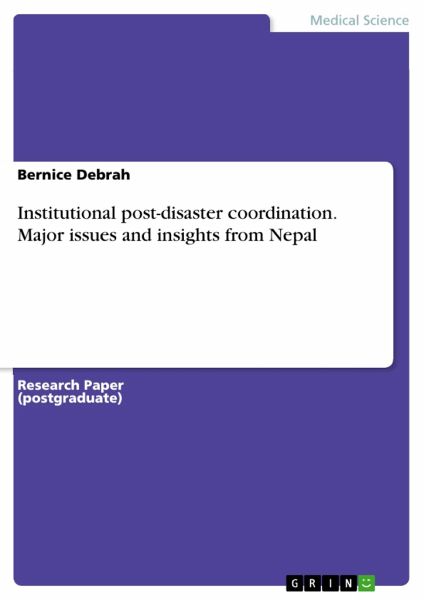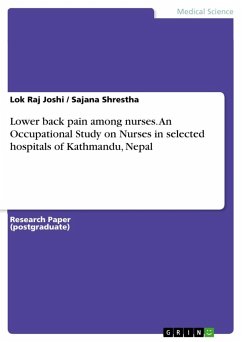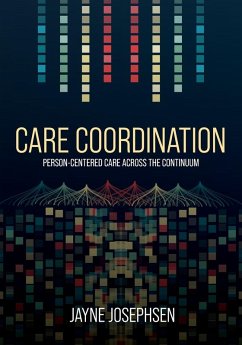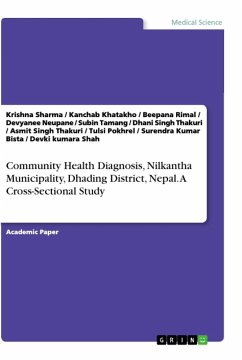
Institutional post-disaster coordination. Major issues and insights from Nepal
Versandkostenfrei!
Versandfertig in 1-2 Wochen
15,95 €
inkl. MwSt.

PAYBACK Punkte
0 °P sammeln!
Research Paper (postgraduate) from the year 2016 in the subject Health - Public Health, grade: 10, University of Copenhagen, language: English, abstract: Coordination has been seen as a crucial factor in ensuring adequate response to disaster as well as successful reduction in future disaster risk. In light of this, the paper evaluated post-disaster coordination in Nepal. Secondary data was primary employed to review key relevant topics in post-disaster earthquake coordination. In the case of Nepal, a number of coordination challenges are evidenced in the strategic, operation and tactical leve...
Research Paper (postgraduate) from the year 2016 in the subject Health - Public Health, grade: 10, University of Copenhagen, language: English, abstract: Coordination has been seen as a crucial factor in ensuring adequate response to disaster as well as successful reduction in future disaster risk. In light of this, the paper evaluated post-disaster coordination in Nepal. Secondary data was primary employed to review key relevant topics in post-disaster earthquake coordination. In the case of Nepal, a number of coordination challenges are evidenced in the strategic, operation and tactical level. An unified approach which incorporates all actors has been proposed for an optimal post-disaster coordinationNepal's location in the Himalayan Alpine Belt makes it highly susceptible to various forms of man-made and natural hazards which often lead to disaster. In many of such large scale disasters, huge economic losses in the form of destruction of infrastructure and loss of lives are evident. It is commonly known that, the immediate consequences of disaster are judged by extremity of conditions. The situation's complexity results from the mere enormity of the urgency of the situation Including factors like the provision of immediate relief and rescue support, challenges in accessing affected population, and the influx of interested stakeholders wishing to assist affected communities. All these factors need to be managed in a process that is timely and locally appropriate. Hence, coordination among both national and international bodies in post-disaster event becomes a crucial factor in ensuring adequate response to disaster as well as reducing future risk. In recent times, various collaborative efforts have been undertaken by international disaster management agencies to strengthen emergency operation and increase humanitarian response among countries and other agencies.












